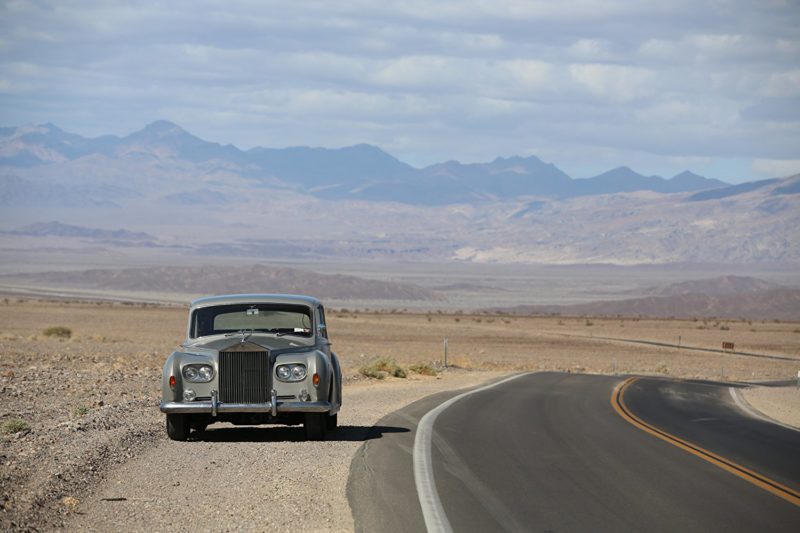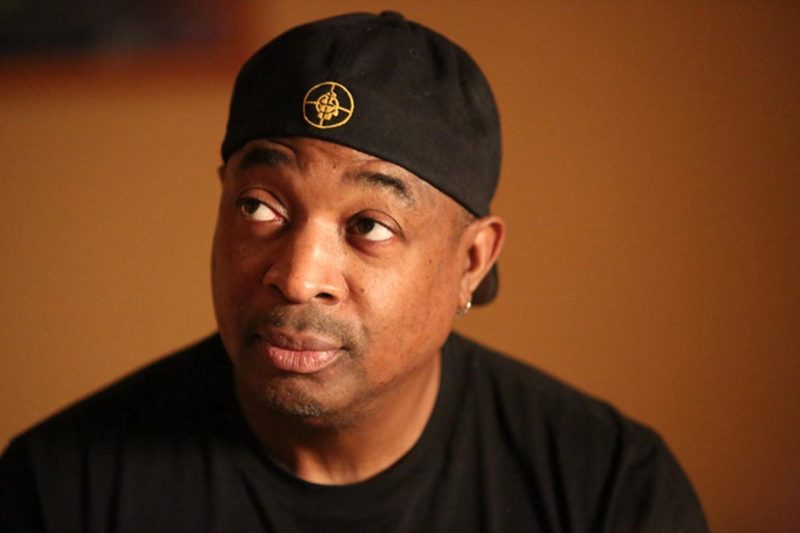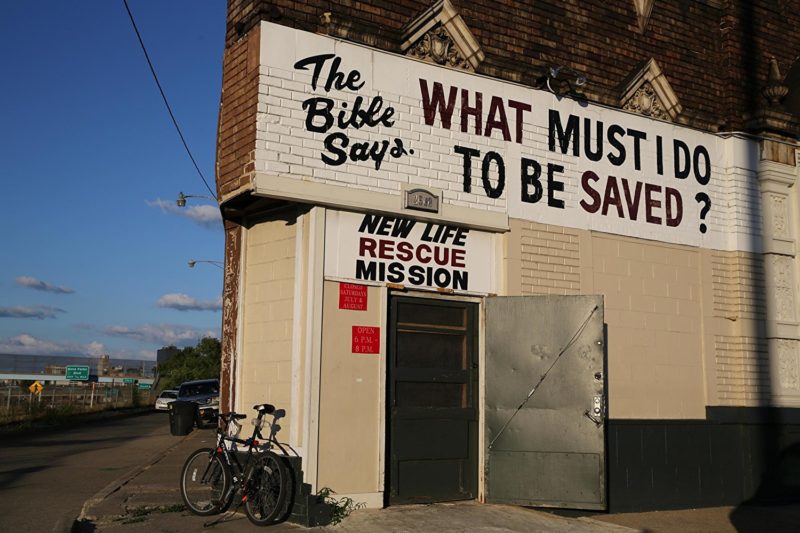Let’s fantasize that in 1968, after the startling success of his televised comeback concert, Elvis Presley continued to recharge his music, stay trim and focused, and put on powerhouse performances. Let’s picture that, in addition to “adult rock” like his final #1 hit, “Suspicious Minds,” he recorded more songs that, while not exactly political, either spoke more directly to the times, like “In the Ghetto” (also released in 1969), or recognized his central position in U.S. culture, like “An American Trilogy,” the medley of reconciliation that included “Dixie,” “Battle Hymn of the Republic,” and a spiritual, “All My Trials.” Let’s imagine that in 1974, tired of being a Las Vegas attraction, he accepted Barbra Streisand’s offer to co-star in A Star Is Born and discovered how to express himself as an actor in a role he was meant to play. What if, after nine positive (fictional) years, he was still found dead on his bathroom floor, his body riddled with prescription drugs? Would he nonetheless be depicted in Eugene Jarecki’s documentary The King the way he mostly is now—as the bloated embodiment of a mercenary and corrupt American Dream? My guess is: of course. In this film, unlike his best work, the director, Eugene Jarecki (The Trials of Henry Kissinger, Why We Fight), treats his subject not as a focus of in-depth inspection but as the object for loose talking points about “cultural appropriation” and decadent capitalism. Jarecki structures his movie around a ramble from Tupelo (Elvis’s birthplace) and Memphis (the launching pad for his sound) to Hollywood and New York, undertaken in Elvis’s actual 1963 Rolls-Royce, with Jarecki himself usually in the driver’s seat and an array of artists and commentators in the passenger’s seats. I didn’t grow up with Elvis the way my older brother did; he sang “Don’t Be Cruel” at a Cub Scouts talent show in 1956, when he was 7 or 8. Thirteen years later, when I was flipping the dial in search of “Let It Be” and bumped into “In the Ghetto,” I respected it, despite the song’s sentimentality and the odd way Elvis had of emphasizing both syllables and bringing out the two T’s in “ghet-to.” It was as if Elvis had re-entered my pop world. (For true Elvis fans, that happened in ’68.) Half a dozen years later, when I read Greil Marcus’s “Elvis: Presliad” in Mystery Train (1975), it helped me understand why American artists and entertainers of world-shaking gifts often wind up as self-parodists: “In a democracy that can perhaps recognize itself best in its popular culture,” Marcus wrote, Elvis achieved a “success so grand and complete it is nearly impossible for him to perceive anything more worth striving for.” Marcus brings a welcome blast of sympathetic imagination to The King. Too bad his contributions get lost in this chic grab bag. When Jerry Seinfeld clicks with a guest on Comedians in Cars Getting Coffee, it’s because they can riff off each other’s comic knowledge and instinct. In The King, Jarecki often tries to give us Rockers in a Rolls Getting Coffee, but I never felt the love or even the like for Elvis emanating from Jarecki or bonding him with his car-mates. It’s a counterintuitive film in the worst sense. The conversations lack spark and spontaneity. The director knows Elvis is a super-rich topic, and his only way to attack it is to assemble four-dozen other people who pay musical tribute to the King or offer perceptions that get turned into glorified sound bites. Some of the most media-prominent talkers, like Van Jones, or the best ones, like biographer Peter Guralnick (who refreshingly insists on Elvis’s individuality), receive the benefit of an indoor, undistracted interview. But the director reduces even these to snips and snaps.
The King is a documentary road movie without a compass or a map. Let me amend that: it has a moral compass, or maybe just a moralistic one. The film simultaneously presents Elvis as the archetypal self-made American hero and pokes holes in that mythic figure and in the image of America itself. The co-writer, Christopher St. John, says in the press notes, “I was drawn to the project because the basic premise of the film is so clean—America has reached its ‘Fat Elvis’ years.” At least it’s “clean” to the filmmakers. Jarecki does recognize Elvis as a cultural game-changer. The ever-quotable James Carville declares, “Mike Tyson, somebody once said, he hits you so hard he changes the way you taste. America never tasted the same after Elvis hit.” Carville says that in Elvis’s time, “A guy could come out of high school, get a job at the plant, stay there for 30, 40 years, send your kids to college—that was the American Dream.” Unfortunately, the movie (not the speaker) makes it seem as if the end of the Dream were partly Elvis’s fault. This movie sets up Elvis as a symbol of false hope at best, and at worst a class traitor and poseur who sold out every time he could. The film’s suggestive juxtapositions include Jarecki’s decision to drive Elvis’s ’63 Rolls through working-class Tupelo and Memphis instead of one of the King’s signature pink Cadillacs, which became emblematic of his generosity when he gave them away. Emmylou Harris tells Jarecki she thought Elvis only drove “American cars.” David Simon, creator of The Wire, Treme, and The Deuce, raises the Cadillac issue with Jarecki, who insists that the Rolls is essential to his film’s poetic vision. I think Simon’s first instinct is correct—“it’s a reach”—and I’d apply that to the entire movie. Simon also talks sense about “cultural appropriation,” an issue the film takes up carelessly. It slights the facts on the ground where Elvis stood in the 1950s and fails to embrace the eclecticism at the heart of high and low American culture. Simon notes that people who emphasize the influence of rhythm and blues ignore the other vibrant strains in Elvis’s music, including the bluegrass of Bill Monroe, whose “Blue Moon of Kentucky” provides the B side for Arthur “Big Boy” Crudup’s “That’s All Right Mama” on Elvis’s first release for Sun Records. Elvis actually proves just how bubbly and inclusive the American melting pot can be. Sure, blues singer Big Mama Thornton scored a hit with “Hound Dog” three years before Elvis covered it, but a couple of white Jews, Jerry Leiber and Mike Stoller, wrote the song.
The King stumbles across both sides of almost every issue, so we get to hear Chuck D of Public Enemy explicate his lyric, “Elvis was a hero to most / But he didn’t mean shit to me,” then acknowledge, with his praise for the Beastie Boys, that it’s good for American culture to be racially porous. (The late Beastie Boy Adam Yauch co-founded Oscilloscope, which is releasing The King.) Van Jones takes a harder line, asking Jarecki why he’s struggling to clear Elvis from the charge of what Jones calls “racial appropriation.” Jones’s critique stems in part from the distance Elvis kept from the Civil Rights Movement. But as Southern fiction-writer Bobbie Ann Mason wrote in Elvis Presley, “the time was right for a magical figure to burst forth like a natural symbol of integration. [Italics mine] Little Richard, the inimitable purveyor of ‘Tutti Frutti,’ said, ‘I thank God for Elvis Presley. I thank the Lord for sending Elvis to open the door so I could walk down the road, you understand?’ ” Jarecki should have used more testimony like Mason’s and Little Richard’s—and he should have gotten more out of Guralnick. Jarecki directs like an executive who listens to the last person in the room. The friction between perspectives that he and his editors conjure produces neither energy nor illumination. No single discussion runs deep, no blend of conversations coheres into a kaleidoscopic vision, and nowhere do we feel the passion or obsession of a filmmaker for his subject. When Jarecki acknowledges that he’s floundering in his search for the movie’s thread, it’s embarrassing, not disarming or amusing. The movie grapples neither incisively nor distinctively with Elvis’s status as a man of the South, something the King himself must have confronted when he sang “An American Trilogy.” It settles for Dan Rather doing his country-boy shtick as he articulates what a shock New York must have been to Elvis. The King mostly presents Elvis on an inexorable, drug-enhanced descent into terminal phoniness, as his infamous manager, Colonel Tom Parker, cuts one record-breaking, soul-crushing financial deal after another. Elvis loses his dangerous edge when Parker turns him into the first modern multimedia celebrity, and he loses his backbeat when he starts recording at RCA in Nashville. He loses his sideburns and his rebel allure when he enters the U.S. Army and becomes a figurehead for Yankee imperialism. (That’s the Van Jones interpretation again; to me he looks trim, primed, ready for action.) When Elvis finally realizes that Hollywood is his gilded cage, he breaks out and stages a galvanizing comeback concert in 1968. But the Colonel keeps assembling lucrative deals for him to play Vegas and in stadiums. The vitality-sapping monotony and drugs combine to kill him. With a reductionism he’d never employ to analyze one of his dramatic characters, that great actor Ethan Hawke says, “Every chance he prioritized money, and where did it leave him? Dead and fat on the toilet at 42.” Is Elvis’s story simply about an artist’s greed and loss of authenticity, and his country’s transformation from a vigorous democracy to a consumer mosh pit? In this movie, it would be, were it not for the imagination of Greil Marcus. Marcus nearly pulls it all together when he speaks of Elvis and America as infinitely flexible metaphors and describes Elvis as his country’s voice at its worst and its best. Marcus enlivens the film even visually. His expansive words bring home the impact of Elvis rambling across America on a wide-open Route 66. Marcus mentions that Ed Sullivan devoted an hour to John Huston’s film of Herman Melville’s Moby-Dick as counterprogramming to Presley’s appearance on The Steve Allen Show. The payoff comes when Marcus says Presley not only killed Huston and Melville in the ratings but he also took over the character of Ahab in his comeback concert, lifting a microphone stand as if it were a harpoon. That image alone suggests the ambition, blasphemy, and anger behind Elvis’s pop explosion. The rest of the movie shrinks it to animal vitality and capitalist exploitation. Michael Sragow is a contributing editor to Film Comment and writes its Deep Focus column. He is a member of the National Society of Film Critics and the Los Angeles Film Critics Association, and a contributor to the Criterion Collection.


